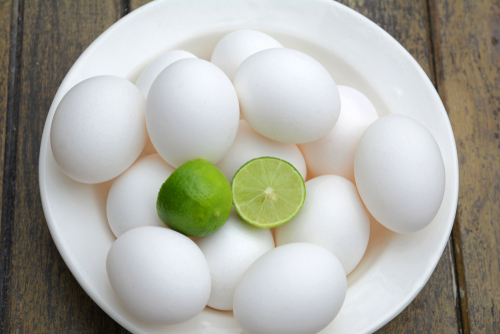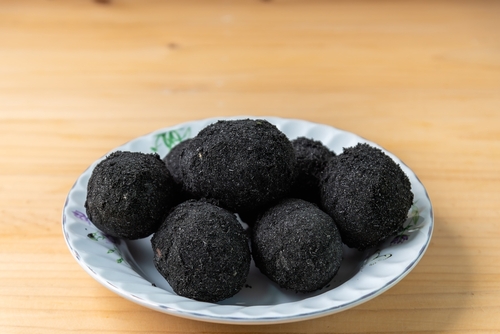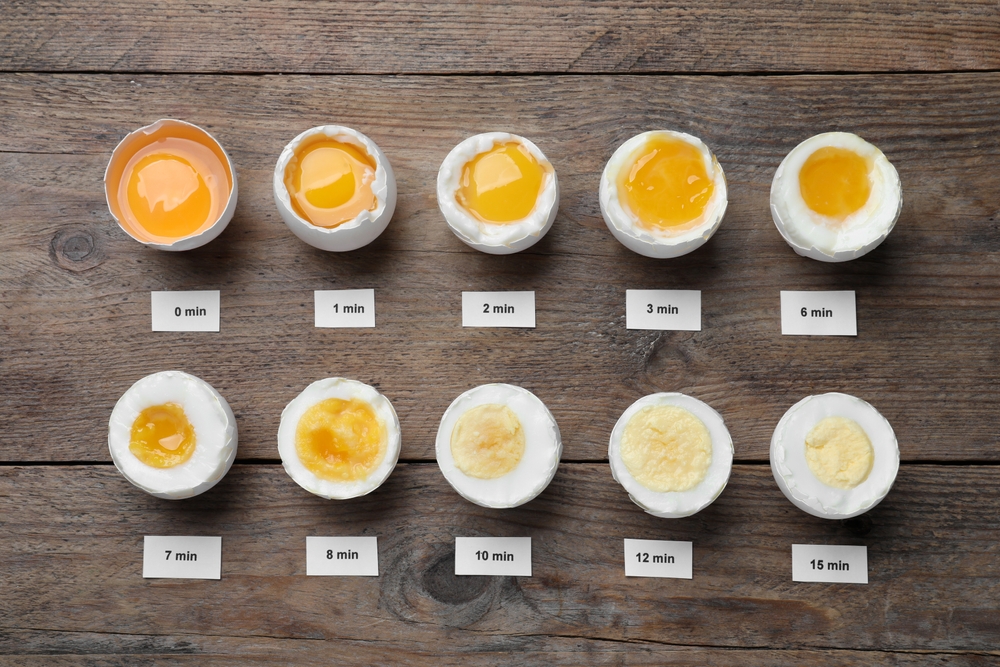Before electricity and refrigerators, folks still had eggs through the winter. They relied on smart, simple methods that anyone can do at home today. The key is using fresh, clean, unwashed eggs. Washing removes the natural coating that seals the shell and keeps bacteria out.
Once you have your fresh eggs, store them in a cool, dry, and dark place. Fifty degrees Fahrenheit is ideal. A cellar, basement, or pantry will work. Below are proven old-fashioned ways to keep eggs fresh for months.

Water-Glassing with Limewater
Water-glassing is one of the best and easiest ways to preserve eggs. It uses pickling lime to seal the shell and lock in freshness.
Here is how to do it:
- Make the limewater. Mix one ounce of pickling lime with one quart of cool water in a clean, non-metal container. Stir until dissolved.
- Add the eggs. Place the unwashed eggs gently inside, small end down. Handle them carefully. A cracked egg can spoil the whole batch.
- Cover them. Pour the limewater over the eggs until they are covered by about two inches.
- Seal and store. Tighten the lid, mark the date, and keep the container in a cool, dark place.
When stored properly, eggs in limewater stay fresh for eight to twelve months. Some people report even longer success. When you need one, rinse it under water before use. To test freshness, place an egg in water. A good egg sinks while a bad one floats.
Limewater Storage
This method is very similar to water-glassing. Use the same ratio: one ounce of pickling lime to one quart of water. It is normal for a bit of lime to settle on the bottom.
Place your eggs small-end down, pour in the limewater, seal the container, and store it in a cool, dark place. Eggs stored this way keep their taste and texture for eight to twelve months. Always use unwashed eggs from your own hens.

Wood Ash Storage
Ash storage is another pioneer method. It works well if you heat with wood. Use clean, sifted hardwood ash without charcoal or debris.
Steps:
- Spread two or three inches of dry ash at the bottom of a sturdy box or bucket.
- Set the eggs small-end down on the ash.
- Cover them with more ash until fully buried.
- Store the container in a cool, dark spot such as a cellar or pantry.
Handled with care, eggs stored in ash can last six to eight months. Keep the box off the floor and away from moisture or heat.
Fat Coating
Some pioneers coated eggs in lard or melted fat before storing them. This takes a little more time but can help seal the shell.
Here is how:
- Melt clean animal fat until it becomes liquid.
- Dip each egg to coat it completely.
- Let them dry, then wipe off any extra fat.
- Store coated eggs upright in ash or bran.
When done right, this can extend freshness for up to eight months. Always rinse before cracking.

Important Tips
- Do not use salt or vinegar. They change the flavor or draw moisture out.
- Always store eggs small-end down to keep the yolk centered.
- Discard cracked or dirty eggs. A single bad egg can ruin a full container.
- Test eggs before use by placing them in water. Fresh ones sink.
- Keep the storage area cool, dark, and dry. Avoid temperature swings. Label each batch with the date.
If you follow these steps and stay consistent, you can keep eggs for months without refrigeration. Limewater gives the best results for taste, ash is the simplest, and fat coating adds another layer of protection. Choose the method that suits you and stick with it.
The pioneers knew how to make food last. Their methods still work. With care and patience, you can enjoy your own eggs through every season.






Read the full article here




